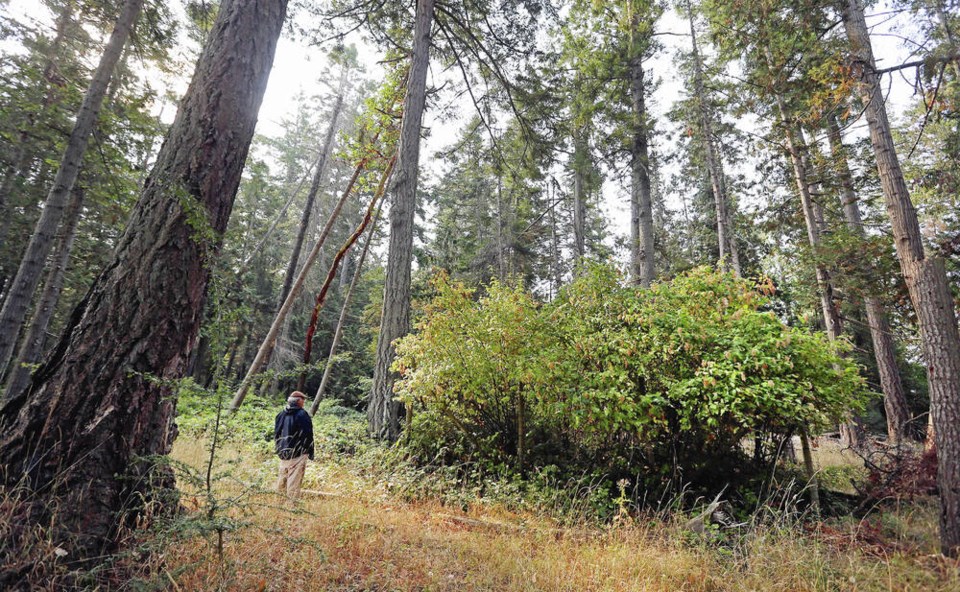About 84 deer were killed as part of a controversial Sidney Island deer cull that involved marksmen shooting from a helicopter, says Parks Canada.
The goal is to restore the natural ecosystem on the island, located just off Sidney, after years of grazing by the invasive fallow deer, with an estimated current population of a few hundred animals.
Parks Canada said Tuesday in a statement that the first phase took place from Dec. 1-11. Three certified marksmen killed the 84 deer through a mix of nighttime ground-based hunting and daytime aerial work that involved one marksman operating out of a single helicopter over five days.
“The majority of animals were dispatched with a single shot; in the remaining cases, a second shot was taken to be certain of immediate and humane death,” Parks Canada said.
The eradication is part of a nearly $6-million multi-year project to restore the Coast Douglas-fir forest ecosystem on the nine-square kilometre island.
The cost of the first phase, which includes the helicopter and marksmen from the U.S. and New Zealand, is about $834,000, said Parks Canada.
For months until the cull began, people pleaded for it to stop, calling it inhumane and unnecessarily expensive, given that organized hunts on the island had been steadily reducing the deer population.
Parks Canada had also said that native black-tailed deer would likely be killed during the eradication process, but the population is expected to re-establish itself on the island.
Parks Canada said its staff and First Nations harvesters worked together to maximize the amount of meat and materials recovered, including meat, hides and other usable materials that were distributed within local W̱SÁNEĆ communities.
Harvesters recovered approximately 800 kilograms (1,800 pounds) of meat, it said.
A second phase of ground hunting is expected to take place between the fall of 2024 and spring of 2025.
Parks Canada said temporary fencing creating enclosed zones of 40 to 120 hectares will be installed across Sidney Island and professional ground-based marksmen will kill the remaining deer.
Fallow deer are not native Sidney Island and were introduced to the area for hunting.
Parks Canada controls about 440 hectares on the north end of Sidney Island, including Sidney Spit, as part of Gulf Islands National Park Reserve. But the majority of the island is privately owned in strata lots and a common area.
The plan to use private contractors to kill the fallow deer and restore native plants divided the island.
Those in favour want the fallow deer gone while those against favour continued private hunting that they say has winnowed the population of fallow deer to fewer than 200 animals.
Earlier this year, residents approved Parks Canada’s plan for deer eradication in a narrow 52% vote.



